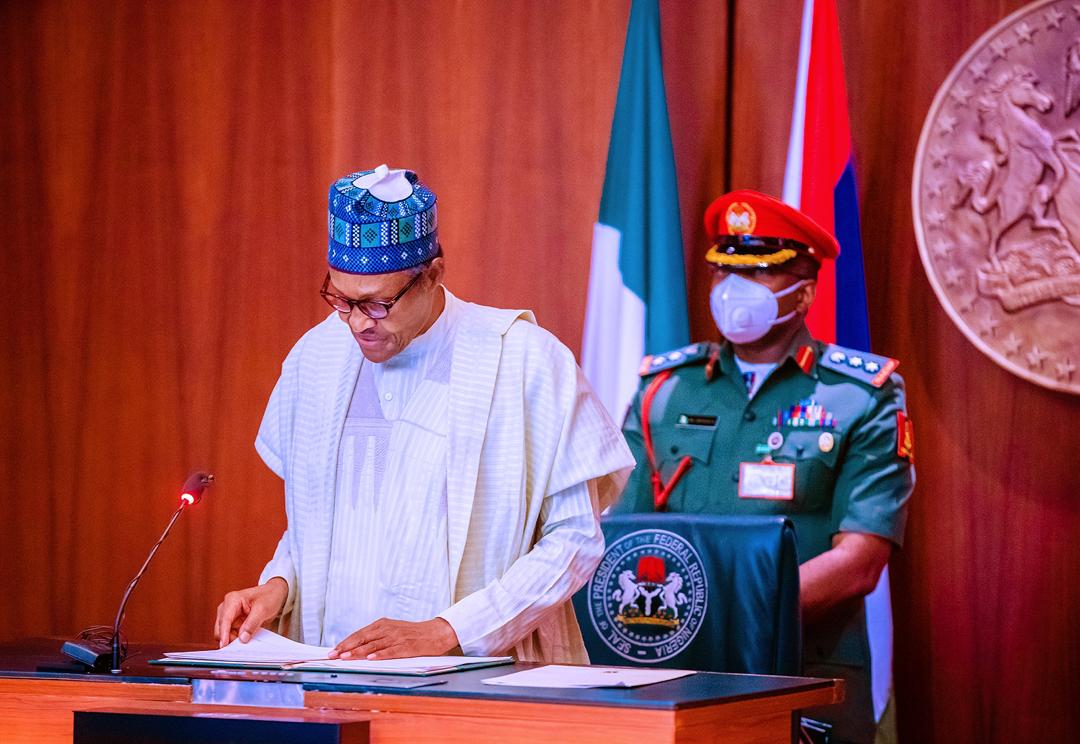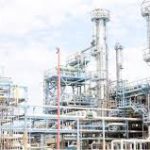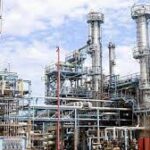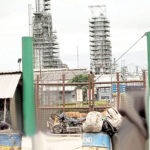After sinking N1.47 trillion into the maintenance, revamping and running of its three moribund refineries in the last five years without bringing them back to life, the federal government has approved a fresh $1.5bn (N570bn) for the repair of the Port Harcourt Refinery.
Among others, the poor state of the refineries is responsible for the frequent increase in the price of petrol in the country, Daily Trust reports.
‘What Does Gumi Know about forests?’ – Masari hits prominent cleric over banditry
We are coming after you, Air Chief warns bandits
People with knowledge of the oil industry say had the refineries been working, Nigeria wouldn’t have been so badly hit by all the factors that affected the oil economy.
In taking the decision to “fix” the Port Harcourt Refinery yesterday, the federal government also said plans were on to carry out similar works on the Warri and Kaduna refineries.
Some experts who spoke to Daily Trust expressed mixed feelings as the refineries had guzzled billions of naira in the past without any tangible outcome as Nigeria continued to import refined oil for domestic use.
Others expressed “careful optimism” that the intervention would likely solve the country’s heavy dependence on oil importation with the attendant huge negative impact on foreign earnings.
They, however, explained that repairs might not last long because the refineries, built decades ago, were too old and urged the federal government to sell them off considering that they would continue to guzzle a lot of money with nothing positive to show.
They also encourage private sector investment in refining as the final solution to the problem of subsidizing the product, saying it was embarrassing that Nigeria, which became an oil producer in the late 50s was still battling with getting it right in the sector.
In its first-ever audited accounts and financial statements released in 2020, the Nigerian National Petroleum Corporation (NNPC) said three of Nigeria’s four refineries gulped N1.64 trillion in cumulative losses recorded in their operations since 2014.
The refineries have a combined production capacity of 445,000 barrels per day (bpd).
The Port Harcourt Refinery, which is set for repairs, has a capacity of 210,000 bpd; Kaduna Refinery has 10,000 bpd capacity; and Warri Refinery 125,000 bpd.
For instance, audit reports showed that the combined losses from Port Harcourt and Kaduna refineries were N208.6 billion in 2014; N252.8 billion in 2015; N290.6 billion in 2016; N412 billion in 2017, and N475 billion in 2018.
Why FG will spend more on Port Harcourt refinery
The Minister of State for Petroleum, Timipre Sylva, who announced the decision to work on the Port Harcourt Refinery while briefing State House reporters, said the rehabilitation will be done in three phases of 18, 24 and 44 months.
He said the contract was awarded to an Italian company, Tecnimont Spa, who is an expert in refinery maintenance, stressing that it was recommended by the original builder of the Port Harcourt Refinery.
He said the funding has three components from the Nigerian National Petroleum Corporation (NNPC) Internally Generated Revenue (IGR), budgetary allocations provisions and Afreximbank.
Sylva, who spoke alongside the ministers of Information and Culture, Lai Mohammed; Works and Housing, Babatunde Fashola; Health, Dr Osagie Ehanire and, State, Budget and National Planning, Clement Agba, said local content was fully considered in the award of the contract.
He said: “The Ministry of Petroleum Resources presented a memo on the rehabilitation of Port Harcourt refinery for the sum of $1.5 billion and it was approved by council today.
“So, we are happy to announce that the rehabilitation of the productivity refinery will commence in three phases.
“The first phase is to be completed in 18 months, which will take the refinery to a production of 90 per cent of its nameplate capacity.
“The second phase is to be completed in 24 months and all the final stage will be completed in 44 months and consultations are approved.”
The minister said the rehabilitation of Warri and Kaduna refineries would also be considered soon by the Buhari administration.
Sylva, while reacting to a question about operations and maintenance, said: “That has been a big problem for our refineries, as we all know. That was also exhaustively discussed in council and the agreement is that we are going to put a professional operations and maintenance company to manage the refinery when it has been rehabilitated.”
The minister, while speaking on whether the fund for the rehabilitation of the refinery was available, said: “I want to answer that the funds are all in place and work will commence forthwith.
“There are various components to the funding: there is funding from NNPC internally generated revenue, there is funding from the budget and there is also a debt funding. For the lenders, we are dealing with AFREXIM bank and they are very committed to us, we have actually concluded discussions with AFREXIM.”
Asked whether the decision to rehabilitate the refinery was as a result of labour unions’ demand that deregulation of petroleum price should come after rehabilitation of the refineries, the minister said: “First, I am not aware of any such agreement that deregulation should only take place after the refineries have been fixed; that was at no time part of our agreement.
“But, of course, this government, from the very beginning, has been in the process of fixing and rehabilitating this refinery. So, it is not because of our discussion with labour, but it is actually the desire of the administration to ensure that our refineries work and that is the process that has borne fruit today.”
The many troubles of the refineries
Daily Trust recalled that shortly after announcing the full deregulation of the downstream oil sub-sector last year, Sylva had said that the increase in the pump price of petrol was unavoidable.
He said fuel price would be determined by the international crude oil price. Of recent, however, there has been confusion occasioned by consistent increase of petrol price even as the federal government continued to battle market forces in order to avoid a backlash from Nigerians.
Recently, the Group Managing Director of NNPC, Mele Kyari, had said during a briefing that the nation’s four refineries would be rehabilitated.
He disclosed that they were “deliberately shut down due to the absence of the Turnaround Maintenance (TAM) and major rehabilitation.”
He said the absence of TAM led to a huge capacity loss at the refineries, prompting major rehabilitation works.
“Every refinery is expected to operate at least 90 per cent of installed capacity. With all the TAM down, it was impossible to run any of these refineries at 90 per cent capacity.
“Our estimate was that we could run at 60 per cent capacity but if we do that, it is simply value destruction. We want to make them work and that is why we are doing full rehabilitation,” he said.
Daily Trust reports that apart from the refineries, the feedstock pipelines are in bad condition.
How refineries gulped N276bn
About N276.87bn was spent between 2015 and 2018 to carry out repair works under the TAM scheme on three of the refineries in Port Harcourt, Warri and Kaduna.
At least $396.33 million (about N152.4bn) had earlier been spent between 2013 and 2017 on TAM schemes on the refineries, a report by Nigeria Natural Resource Charter (NNRC) shows.
Official figures compiled from NNPC’s operations reports showed that Port Harcourt refinery stopped producing crude in March 2019.
Kaduna refinery, the worst performer, has not received or processed crude since 2017, while Warri refinery stopped in June 2019.
The report by NNPC further showed that the refineries lost N123.25bn between January and October 2019.
While KRPC posted a loss of N49.3bn, PHRC and WRPC lost N36.7bn and N37.24bn, respectively.
‘Collapsed refineries responsible for high fuel price’
Experts on Wednesday blamed the recent increase in the pump price of petrol on high fuel importation and its associated cost occasioned by the lack of functional local refineries.
An Abuja-based economist, Simon Galadima, said Nigeria refining its own crude will save it a lot of hassle as doing so will help conserve scarce foreign exchange for importation of other and more important things.
“However, government management of any resource has always been catastrophic. More so, Nigerian government has even been beyond grossly incompetent in management of things,” he said.
He advised the federal government to sell the refineries or concession them to yield better results.
Galadima added that repairing the Port Harcourt Refinery will not in any way hamper private investments in refining capacity unless the revived Port Harcourt refinery was given undue concessions.
Similarly, a petroleum industry commentator, Suraju Oyewale, shared the view that the refineries should be sold or concessioned.
Oyewale said: “It is clear that the government cannot manage these refineries. Yar’adua made a big mistake by reversing the sale of the refineries by Obasanjo in 2007.
“I don’t mean to sound like a doomsday analyst, but I don’t see anything coming out of this repair. There have been many turnaround maintenance carried out on these refineries in the past three decades. It gets worse with every maintenance project. This is money in the drain. Other than keeping the refinery workers employed and keeping some contractors busy, I don’t see how this move contributes anything significant to the economy.
“The government should hands off direct investment in crude refining the same way it handed off oil products retailing by selling its shares in its old downstream companies (like Unipetrol, now being privately and effectively run as Oando; AP sold to Forte Oil and now Ardova Petroleum among others). This was before government returned to fuel retailing through NNPC Retail.
“I am not sure the Nigerian government can run a modern refining business. In fact, it is my view that NNPC itself should be privatized although PIB retains government ownership, only that it will now be a limited liability company with government being the shareholders,” he said.
There are plans to ground Warri Refinery – Reps
The House of Representatives has called on the federal government to resuscitate Warrior Refinery to operate at full capacity.
This was sequel to a motion moved by Rep. Ben Igbakpa, during plenary, on Wednesday, titled: ‘Commencement of Operations at the Warri Refining and Petrochemical Company.’
Presenting the motion, the lawmaker lamented that there was growing concern over the planned reintroduction of fuel subsidy on Premium Motor Spirit (PMS).
According to him, the refinery had not operated optimally due to top management decisions of NNPC to ground the plant for personal benefit from marketers importing products that could be produced in the refinery.
“The plant had severally shut down due to haulage challenges, neglect in the evacuation of products, lack of functional or operational storage tanks and poor maintenance culture on the part of management which also constitutes another reason for the refinery’s non-functionality,” he said.
The House, therefore, mandated its Committee on Petroleum Resources (Upstream) to investigate the activities of NNPC regarding the operations of Warri Refinery.
By Muideen Olaniyi, Zakariyya Adaramola & Balarabe Alkassim

 Join Daily Trust WhatsApp Community For Quick Access To News and Happenings Around You.
Join Daily Trust WhatsApp Community For Quick Access To News and Happenings Around You.


